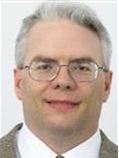by Dennis B. Horne

Some months ago I noticed the comments of a critic of the Church posted on a (highly critical) chat-site forum. This person wanted to engage with me in a debate about Church history and doctrine in hopes of causing doubt or loss of faith. His opening catch-phrase was clever, something like, “I assume he is a truth-seeker” (meaning me). This was meant to sound innocent; after all, for goodness sake, shouldn’t we all be truth-seekers?; especially Latter-day Saints?
At first glance I knew sophistry was in play. I realized that this question “are you/is he a truth-seeker,” was a wolf-question in sheep-question disguise. It was a way to ensnare, to set a trap. Something like “beware of the evil behind the smiling eyes.”
But it also gave me further occasion to ponder whether or not I am a truth-seeker, and if so, what kind of truth-seeker I am, and this caused me to engage in some introspection. Sometimes the deceptions of the enemy (Satan’s mortal servants and spokespeople who often don’t know they are) can prod thoughtful people into adjusting or refining their thinking and views, and such was the case for me. While I made no direct response to the subtle crafty critic then, I now offer some broader thoughts on the subject.
I have decided I am not really much of a truth-seeker as the world would define the term (and where they would expect me to seek it). In this larger sense, I am already a truth-founder. I know God lives and that He has revealed Himself today to prophets. I have no need to go to science or scholarship or other religions (although I have seen some of what each of these has to offer) to find God or His plan of salvation. Because I became and remained faithful to Elohim and Jehovah to some degree in the pre-mortal existence, I was born into a family of faith that already possessed the truth, and I was eventually intelligent and spiritually attuned enough to realize that fact and rejoice in it. Since then, there have been numerous powerful revelations of truth and confirmation that have granted certainty. (Scholarship may assist or enhance or confirm, depending on where it is coming from, but it is not the source of ultimate truth.)
I am decidedly an obsessive truth-seeker in the sense of looking for truth where it is most likely to be found. This to me is the great difference and definition issue brought up by the critic. He wanted me to look for truth in counterfeit places; in suspect scholarship and theoretical science. He figured that if he could convince me that these allegedly reliable sources had truth in them, his chances of causing doubt in the Restored Church of Jesus Christ rose. What he didn’t realize was that, at least in my case, pitting God’s revelations of truth to me against the insufficient learning of men was a silly no-brainer that has always backfired. How can evolving and sometimes contradicting scholarship compete with the power of the Holy Spirit of God? Faulty scholarship and weak critical arguments are helpless against revelation. “Confirmation bias!” shout critics who have never known or felt the power of God; makes them look foolish.
So I continue looking for truth in the scriptures (the standard works) and in the teachings of modern prophets and apostles, and I keep finding it; I keep being rewarded in my search for truth. I do not go to some critic’s YouTube videos, where he pontificates some current theory on horse bones or Egyptian manuscript translations. These poor fellows are doing nothing but ignorantly creating smoke-screens that will be obliterated either in this life or the next. I just noticed this brief but telling anecdote recently shared (on another fine website) by Elder Tad Callister:
I have a friend . . . who joined the Church. . . . He was an extremely bright young man. He then got caught up in the criticisms on the internet. . . . He decided he couldn’t intellectually accept the Book of Mormon.
I remember talking to him and saying, “If you leave this Church it will ruin you for any other church because you know too much. What other church is going to teach you about the premortal existence? What other church is going to teach you about the spirit world, or baptism for the dead, or the three degrees of glory, or exaltation, or eternal marriage, or apostles being necessary today? It will totally ruin you for any other church. You’ll either be a church on your own or go down the road of atheism.”
Well, he looked for another church. He searched and searched and searched, and could not find one. He knew too much. So he finally decided he would re-investigate the Church.
He told me, “I was kneeling in prayer one day asking if the Book of Mormon were true, and a spiritual witness came to me that it was. And I realized that all the time I was looking for archaeological or linguistic or geographic evidence of the Book of Mormon. But all the time I should have been looking for Jesus Christ and His teachings, and how it affects me.” He rejoined the Church. . . .
Meanwhile, the critics, as emissaries of Satan, are engaging in an infinitely serious and consequential quest: trying to destroy a person’s chances of gaining eternal life.
It’s not a big deal, but I believe that some members have interpreted Alma’s comment about murder in Alma 39:6 wrong. Because verse 5 talks about “the shedding of innocent blood” some have thought that the reference to murder in verse 6 meant the same thing. At least I have heard that view argued and taught. However, I personally believe Alma was speaking of his own early experience with leading away members of the church when he said, “whosoever murdereth against the light and knowledge of God, it is not easy for him to obtain forgiveness; yea, I say unto you, my son, that it is not easy for him to obtain a forgiveness.” If anyone ever had an exquisitely hard time obtaining forgiveness for their sins (including causing others to apostatize), it was Alma; he knew from his own personal experience. He metaphorically murdered others’ souls when he purposely used his talents of persuasion to convince people to leave the Nephite church; to cause them to forsake the gospel and their sacred covenants. This is the same thing critics of the Restored Church of Jesus Christ are striving to do today, working hard to murder “against the light and knowledge of God.” And someone wants to do that to me? I know exactly who they are working for even if they might not.
One ray of hope for misled people that I know of, is found in D&C 50:7 “there are hypocrites among you, who have deceived some, which has given the adversary power; but behold such shall be reclaimed.” I don’t know how broad and far this promise goes, but at least it gives hope for those who are led astray by critics of the Church of Jesus Christ, many of whom once had testimonies—the “light and knowledge of God.” Their fate?: “the hypocrites shall be detected and shall be cut off, either in life or in death, even as I will; and wo unto them who are cut off from my church, for the same are overcome of the world.” Some of these people are detected and excommunicated in this life, but others won’t be until the next, after their death, “even as” God wills; “wo unto them”!
Another ray of hope comes from D&C 138, where statements like this might eventually have some sort of application to the deceived and rebellious: “Thus was the gospel preached to those . . . in transgression, having rejected the prophets” (v. 32, and also see 37, 58-59). As President Oaks taught in the recent General Conference, there is repentance for some, to some degree, in the spirit world. Whatever the case may be, above all other things, I do not want to be “overcome of the world” or having the Lord talking about me saying “wo unto them.”
President Russell M. Nelson has warned: “Those same threats are among us today. The somber reality is that there are ‘servants of Satan’ embedded throughout society. So be very careful about whose counsel you follow.” The Prophet doesn’t go to YouTube or Reddit or blogs for truth; he is thankfully not a “truth-seeker” in that sense. As he has said, he goes to the revelations of God (the scriptures), and directly to God Himself, and to His Brethren of the First Presidency and the Twelve to obtain spiritual truth; He is most definitely that kind of truth-seeker. He has explained that even in seeking truth in science, he used spiritual law (along with the scientific method) to discover scientific truth.
 Dennis B. Horne grew up in south Davis County and he served in the Independence Missouri mission. He attended BYU and Weber State Universities, earning a degree in Communications. After working in television broadcasting for a number of years he became a technical writer for the LDS Church Material Management Department. He became an independent researcher/author because of his love of church history and doctrine. This pursuit led him to write a biography of Elder Bruce R. McConkie, an edited publication of the diaries of Abraham H. Cannon, and biographies of President Lorenzo Snow and Orson F. Whitney. He also wrote about callings to serve in the church, the doctrine of giving healing blessings, and a compilation of the teachings of prophets and apostles about how to determine doctrinal authority. He has twice presented at the BYU Church History Symposium. His articles occasionally appear at Truth Will Prevail, Interpreter, and FairMormon.
Dennis B. Horne grew up in south Davis County and he served in the Independence Missouri mission. He attended BYU and Weber State Universities, earning a degree in Communications. After working in television broadcasting for a number of years he became a technical writer for the LDS Church Material Management Department. He became an independent researcher/author because of his love of church history and doctrine. This pursuit led him to write a biography of Elder Bruce R. McConkie, an edited publication of the diaries of Abraham H. Cannon, and biographies of President Lorenzo Snow and Orson F. Whitney. He also wrote about callings to serve in the church, the doctrine of giving healing blessings, and a compilation of the teachings of prophets and apostles about how to determine doctrinal authority. He has twice presented at the BYU Church History Symposium. His articles occasionally appear at Truth Will Prevail, Interpreter, and FairMormon.

One of the most amazing things about the gospel of the restored church of Jesus Christ is that anyone and everyone can find out for themselves the truth about any issue. When Joseph Smith knelt down and prayed to know what religion was true he followed this recipe found in James: pray without doubt and receive an answer. The pattern of have a question, study, pray, receive your answer, is the path of growth and progression, and is fundamental to a faithful lds experience. It is the key to unlocking the power of the endowment, and the power of the atonement. Thank you for a thoughtful article.